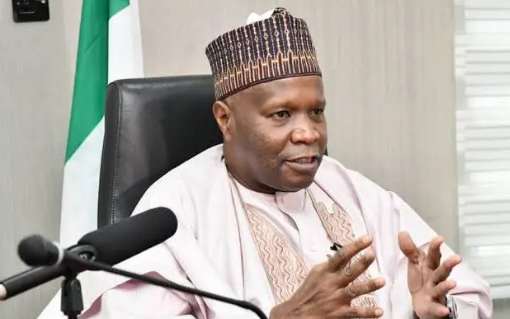For decades, Nigeria’s livestock sector has faced immense challenges, ranging from shrinking grazing reserves to escalating farmer-herder conflicts and outdated pastoral practices. These issues have stifled productivity, exacerbated tensions, and kept livestock farming far from its full economic potential.
In Gombe State, however, Governor Muhammadu Inuwa Yahaya is proving that with political will, strategic planning, and inclusive governance, the livestock sector can be modernized to benefit both pastoralists and the broader economy. His administration has not only identified the sector’s long-standing challenges but has also taken concrete steps to address them through sustainable policies and strategic partnerships.
The Livestock Productivity and Resilience Support (L-PRES) Project has emerged as a game-changer in Gombe. Within just a year of full implementation, the project has brought tangible improvements that are already transforming the fortunes of livestock farmers. The governor’s foresight in appointing a seasoned veterinary expert, Prof Usman Bello Abubakar as the project coordinator has ensured that the initiative is anchored on expertise, inclusivity, and real stakeholder engagement.
Crucially, Gombe livestock farmers are no longer passive recipients of government interventions—they are active participants in shaping policies and programmes that affect them. Their involvement in decision-making ensures that programmes such as breed improvement, water provision, and modern dairy farming are not just theoretical concepts but practical solutions tailored to their needs.
One of the most remarkable aspects of L-PRES is its free artificial insemination (AI) programme, which introduces high-yield exotic cattle breeds into the local ecosystem. This initiative is set to enhance dairy production and profitability, moving pastoralists away from subsistence-level farming to a more commercially viable model.
The challenges facing livestock farmers in Gombe mirror those faced nationwide—climate change-induced scarcity of grazing land, water shortages, and rising conflicts between farmers and herders. However, Governor Inuwa Yahaya’s administration has tackled these issues head-on.
Through solar-powered boreholes, the government has provided water in strategic locations, reducing the need for seasonal migration and preventing conflicts. The establishment of milk collection centres in Funakaye, Nafada, and Kwami ensures that dairy farmers have access to structured markets, reducing the risks faced by women and children who traditionally hawk milk.
Furthermore, the proposed international livestock market and ultra-modern abattoir will not only boost trade but will also position Gombe as a major player in Nigeria’s livestock value chain. By creating a structured market, the state will attract investors, ensure hygienic meat production, and enhance revenue generation.
Beyond economic empowerment, Governor Inuwa Yahaya has taken decisive steps to prevent farmer-herder conflicts, which have historically plagued many parts of Nigeria. His administration’s Farmer-Herder Conflict Prevention and Settlement Committee, which meets with farmers and herders across all 15 emirates and chiefdoms, has played a crucial role in mitigating tensions before they escalate.
The governor’s strict policy on seasonal migration—banning pastoralists from entering Gombe until after the harvest season—has proven effective in reducing clashes. Additionally, the re-mapping and re-demarcation of grazing reserves and cattle routes will provide a long-term solution to disputes over land encroachment.
Governor Inuwa Yahaya’s efforts are indeed setting Gombe on a path to becoming a model for livestock management in Nigeria and across Africa. His administration is demonstrating that modernizing the livestock sector is not just about providing infrastructure but also about engaging communities, leveraging technology, and enacting forward-thinking policies.
As Modibbo Yahaya, the Gombe MACBAN Chairman, aptly noted, “If we continue on this path, Gombe will not only be a model for northern Nigeria but for the entire African continent.”
To sustain this momentum, a comprehensive livestock census should be conducted to track both indigenous and foreign cattle, curb cattle rustling, and enhance security. Additionally, pastoralists must embrace modern livestock practices and support the government’s transformation agenda.
Governor Inuwa Yahaya’s bold initiatives in the livestock sector reaffirm his administration’s commitment to economic growth, social harmony, and agricultural transformation. What Gombe is achieving today should serve as a blueprint for other states—and indeed the nation—to follow.
